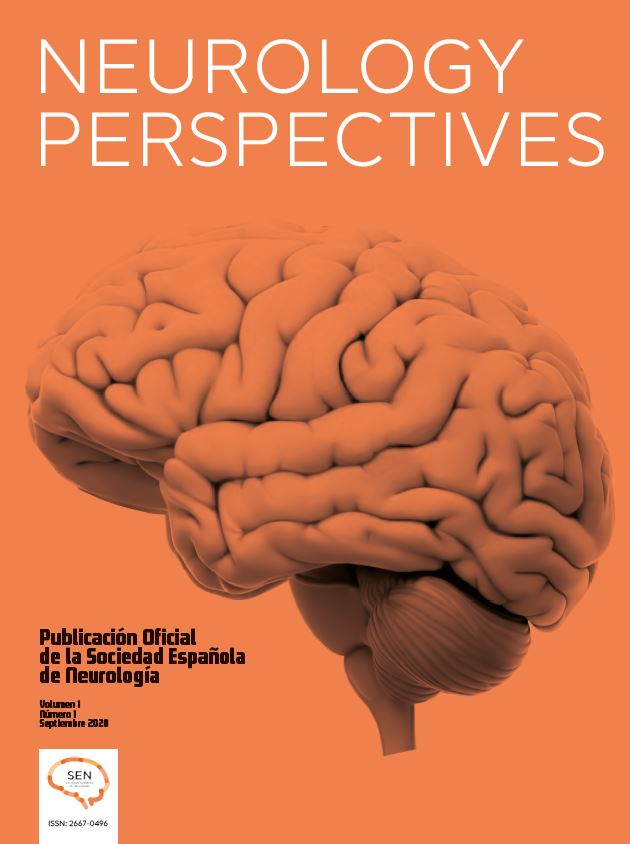We read with interest the article by Garcia et al. on a 14 year-old man with headache, neurological deficit, and cerebrospinal fluid (CSF) lymphocytosis (HANDL) syndrome after a PCR-positive SARS-CoV-2 infection in the last month before admission.1 Although a comprehensive work-up of the cause of headaches and pleocytosis provided only negative results, a causal connection between SARS-CoV-2 infection and the HANDL syndrome was suspected.1 The study is compelling but has limitations that should be discussed.
The main limitation of the study is that the CSF was not further examined for immunological parameters such as cytokines (IL2, IL6, IL8, IL12, IL13, IFN-alpha, MCP-1), chemokines, glial factors, 14-3-3, tau, proteins of serpin pathways, complement factors, glycoprotein-alpha-2, glycoprotein-alpha-1, linear RNAs, circRNAs etc. It has been reported that these immunological/infectious parameters in CSF were repeatedly increased after SARS infections.2,3
A second limitation of the study is that the MRI was not performed with contrast medium. In order to rule out meningitis or encephalitis, the administration of contrast medium is absolutely necessary, since particularly infectious or immune encephalitis can often only be visualized by documenting the enhancement on imaging.
A third limitation of the study is that no immune encephalitis associated antibodies were measured. Since the patient had pleocytosis and headache and both have been reported in connection with immune encephalitis,4 the determination of these antibodies is imperative. They are positive in about half of patients with immune encephalitis.
A fourth limitation is that cerebral vasculitis was not adequately ruled out. Cerebral vasculitis has been described as a rare complication of SARS-CoV-2 infections5 and can be associated with headache and pleocytosis. Therefore, it is imperative that ANA, ANCA, ESR are measured and that not only MRA but also MRI with black blood sequences is applied.
A fifth limitation of the study is that no PCR was performed for SARS-CoV-2 in CSF. Although rarely positive in CSF, there are several cases in the literature with SARS-CoV-2 associated meningitis or encephalitis with positive PCR for SARS-CoV-2 in CSF.
There is discrepancy between the patient's history of holocranial pulsatile headache and the description of being asymptomatic. This discrepancy should be clarified.
Several dates are missing. There is no mention of whether the CSF was cytologically examined by a pathologist for abnormal cells, particularly lymphoma cells. It is not mentioned whether the index patient had received a SARS-CoV-2 vaccination or not.1 We should know when he received the last dose and whether it was tolerated without side effects. Headache and pleocytosis can be a complication of SARS-CoV-2 vaccination. It is not mentioned why the patient received lacosamide.1 Have seizures been reported or observed? Did electroencephalography (EEG) show epileptiform discharges? There is no mention of whether tuberculosis, syphilis, HIV have been adequately ruled out. It is also not mentioned whether FDG-PET was normal or showed hypo- or hypermetabolism, whether the CSF culture was positive or negative for fungi, and whether reversible cerebral vasoconstriction syndrome (RCVS) was adequately ruled out. Has the patient's history been positive for a recent trip to the tropics?
Overall, the interesting study has limitations that put the results and their interpretation into perspective. Addressing these issues would strengthen the conclusions and could improve the status of the report. A causal relationship between HANDL syndrome and SARS-CoV-2 infection cannot be proven until all differential causes of headache with lymphocytic pleocytosis have been sufficiently ruled out.
Financial disclosures for the previous 12 monthsThe authors declare that the research was conducted in the absence of any commercial or financial relationships that could be construed as a potential conflict of interest.
Author contribution1. Research project: A. Conception, B. Organization, C. Execution; 2. Statistical Analysis: A. Design, B. Execution, C. Review and Critique; 3. Manuscript: A. Writing of the first draft, B. Review and Critique: author xx: 1A, 1b, 1C, 3A, 3B;
Data access statementAll data are available from the corresponding author.
Ethical compliance statementThe authors confirm that the approval of an institutional review board or patient consent was not required for this work. We confirm that we have read the Journal's position on issues involved in ethical publication and affirm that this work is consistent with those guidelines. This article is based on previously conducted studies and does not contain any new studies with human participants or animals performed by any of the authors.
Funding sourcesNone.
Patient consentNot applicable.





